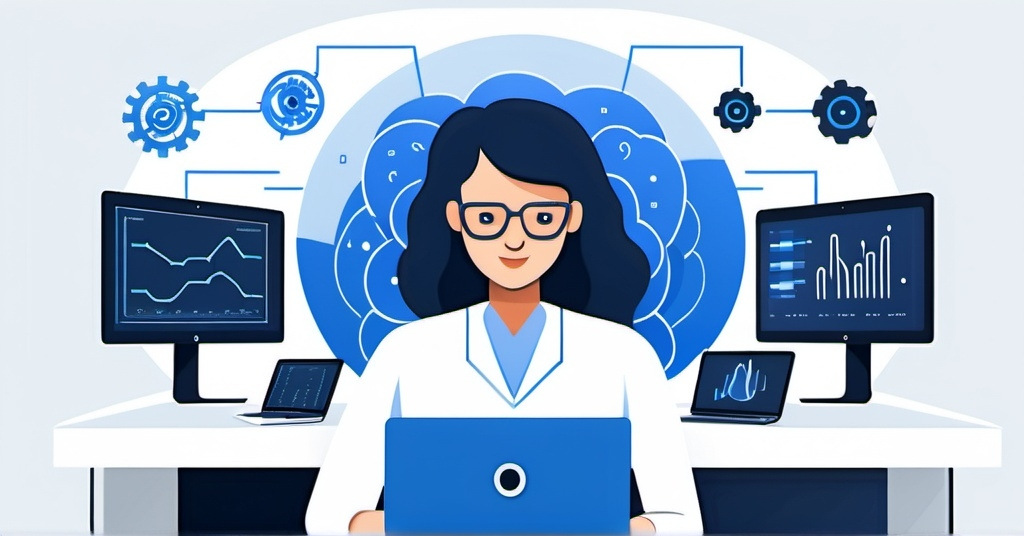
23
Jul
In recent years, the field of software testing has been revolutionized by the advent of Machine Learning (ML). This remarkable technology has introduced a new era of efficiency, accuracy, and speed in testing processes.
With ML, many traditional testing challenges are being addressed in innovative ways, paving the way for more reliable and robust software systems. This blog post will explore how machine learning is transforming software testing, the benefits it brings, and the potential challenges that come with its adoption.
The Evolution of Software Testing
Traditional Software Testing Methods
Traditionally, software testing has relied heavily on manual processes. Testers would write and execute test cases to identify bugs and ensure that the software met specified requirements. While effective, manual testing is time-consuming, prone to human error, and often fails to keep up with the rapid pace of software development.
Introduction of Automated Testing
The introduction of automated testing marked a significant improvement over manual methods. Automated testing tools such as Selenium, JUnit, and TestNG allowed testers to write scripts to perform repetitive tests automatically. This shift improved efficiency and accuracy, yet it still required significant human intervention to write and maintain test scripts.
How Machine Learning is Enhancing Software Testing
Automated Test Case Generation
Machine learning algorithms can analyze the software’s codebase and generate test cases automatically. By learning from past data, these algorithms identify patterns and predict areas that are more likely to contain bugs. This capability reduces the time and effort required to create comprehensive test suites.
- Example: AI tools like Testim.io use machine learning to create and update test cases dynamically, ensuring that tests are always up-to-date with the latest code changes.
Predictive Analytics for Defect Detection
Machine learning models can predict defects before they occur by analyzing historical data and current code changes. This proactive approach allows developers to address potential issues before they manifest, reducing the number of bugs that reach production.
- Example: Tools like Bugspots use ML to identify “hot spots” in the code that are prone to defects, allowing teams to focus their testing efforts more effectively.
Intelligent Test Maintenance
One of the significant challenges in automated testing is maintaining test scripts as the software evolves. Machine learning can help by automatically updating test scripts in response to changes in the application. This ensures that tests remain relevant and reduces the maintenance burden on testers.
- Example: ML-powered tools like Functionize use AI to adapt test scripts to changes in the UI automatically, minimizing the need for manual intervention.
Enhanced Test Coverage
Machine learning algorithms can analyze user behavior and application usage patterns to identify areas of the software that require more thorough testing. This ensures that testing efforts are focused on the most critical parts of the application, leading to higher test coverage and more reliable software.
- Example: ML tools can analyze logs and user interactions to determine which features are most used and need more rigorous testing.
Anomaly Detection
Machine learning models can identify anomalies in the software by comparing current performance metrics against historical data. This capability helps detect issues that may not be apparent through traditional testing methods.
- Example: Tools like Splunk use ML to monitor application performance and detect anomalies that could indicate underlying issues.
Benefits of Machine Learning in Software Testing
Increased Efficiency
By automating repetitive tasks and reducing the need for manual intervention, machine learning significantly increases testing efficiency. Testers can focus on more complex and creative aspects of testing, improving overall productivity.
Improved Accuracy
Machine learning models can analyze vast amounts of data with high precision, reducing the likelihood of human error. This leads to more accurate test results and higher-quality software.
Cost Savings
The automation and efficiency gains achieved through machine learning reduce the overall cost of software testing. Fewer resources are required to achieve the same, or even better, results.
Faster Time-to-Market
With machine learning enhancing testing processes, software development cycles are shortened. This enables faster delivery of high-quality software to the market, providing a competitive edge.
Challenges and Considerations
Data Quality and Availability
Machine learning models require large amounts of high-quality data to function effectively. Ensuring that this data is available and accurately labeled can be a significant challenge.
Integration with Existing Tools
Integrating machine learning tools with existing testing frameworks and workflows can be complex. Organizations need to invest time and resources to ensure seamless integration.
Skill Gap
Adopting machine learning in software testing requires a certain level of expertise. Testers need to be trained to use ML tools effectively, which can be a barrier for some organizations.
Ethical and Bias Concerns
Machine learning models can inadvertently introduce biases into the testing process. It’s crucial to ensure that these models are trained on diverse and representative data sets to mitigate this risk.
Conclusion
The role of machine learning in software testing is truly transformative. By automating and enhancing various aspects of the testing process, ML is helping organizations deliver higher-quality software more efficiently. While there are challenges to overcome, the benefits far outweigh the difficulties. As machine learning technology continues to evolve, its impact on software testing will only grow, leading to even more innovative and reliable software solutions. Embracing this technology now will prepare organizations for a future where machine learning is an integral part of the software development lifecycle.
CEO & Software Architect | Tech Speaker | Forbes business promises of LATAM
Alex is a successful risk-taker. he uses unique ways to determine what the issue needs and has the capability of tweaking her development methods accordingly. As a pragmatic leader and a realist, he can grasp ideas in a holistic manner and still pay attention to minor details. Alex is known as diligent and personable – two qualities that define him completely. As a creative thinker who possesses a can-do attitude.

